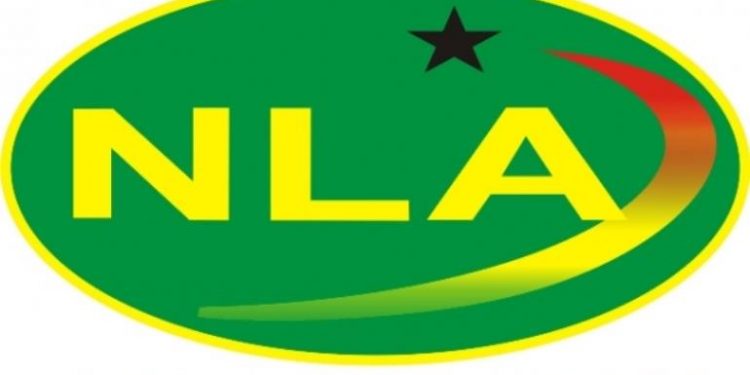Caritas, the National Lottery Authority’s (NLA) digital platform, is at the center of a growing scandal following an explosive investigation by The Fourth Estate.
Bright Simons, Vice President of IMANI Africa, has weighed in on the revelations, providing crucial historical context and warning that the problem runs far deeper than the recent findings.
According to Simons, while The Fourth Estate has done an excellent job of tracking the destination of the money generated by the NLA’s Caritas platform, a comprehensive understanding of the issue requires examining the platform’s very origins and purpose.
“So far, the 4th Estate has produced detailed information about where the money made from the NLA’s Caritas platform went. But to fully appreciate the craziness of the situation, we need to probe the policy history of Caritas itself. And find out how the money was made.”
Bright Simons
Simons explained that Caritas was launched by the NLA in 2012 as part of efforts to digitalize its operations, based on the authority’s interpretation of its 2006 mandate.
The initiative was presented as a cutting-edge solution to regulate promotional campaigns in Ghana.
The NLA announced that no company could run promotions such as raffles, sweepstakes, or prize draws without following three steps: paying fees to the NLA, registering the promotion, and allowing the authority to supervise the process.
Simons described this move as a textbook example of katanomics, a situation where laws are passed without being guided by practical policy experience or research.
“In state enchantment fashion, NLA then went ahead and, in 2012, announced that no promo held in Ghana would be legal unless the promo used the Caritas platform. This was presented as some kind of grand innovation.”
Bright Simons
However, behind the scenes, the platform’s real purpose was different. Simons alleged that it was primarily designed to generate revenue for private contractors, with the beneficiaries initially kept hidden from the public eye.
This led to selective enforcement, where only large, wealthy companies were targeted for compliance.
The Mystery of Engboxx
By 2015 or 2016, a company called Engboxx emerged as the operator of the Caritas platform. However, details of the arrangement between NLA and Engboxx remained shrouded in secrecy.
Bright Simons revealed that there has never been a proper review of how the Caritas-Engboxx setup was created.
“No disclosures on procurement or contracting. Nothing,” he lamented, adding that his own research has found no evidence that this regulatory system has added any value to Ghana’s marketing and branding industry.
On the contrary, he said it has increased costs and created unnecessary bureaucratic hurdles, stifling innovation in the marketing space.
“Money is simply siphoned off from legitimate marketing agencies and washed through NLA for various connected people, as 4th Estate has revealed.”
Bright Simons
He further noted that Caritas essentially competes with private digital operators, which has slowed down innovation in the promotions sector.

What makes matters worse, according to him, is that such schemes persist irrespective of which political party is in power, as the private beneficiaries simply switch allegiances when governments change.
Simons pointed out that opacity has been a defining feature of Caritas since its inception. Until the recent Fourth Estate report, there had never been a proper audit of the platform’s revenues.
The first minor attempt at scrutiny came in 2019, when the Auditor-General raised limited questions about Caritas contracts worth over GHS 600,000 that had been suspended.
Simons suggested this occurred because new leadership at the NLA at the time had not yet formed relationships with the true beneficiaries behind the platform.
NLA Makes Huge Revenues, No Clear Accounting
Following a relaunch of the Caritas platform in 2021, the NLA reported that it had generated GHS 11 million in revenue.
However, its public relations team also claimed that the platform had “created value” amounting to GHS 700 million, a figure that Simons said makes little sense given the lack of independent financial oversight.
“The truth is that since 2012, no one has done a proper governance and independent financial audit of Caritas. End of story. It is what it is,” he remarked, expressing frustration at the lack of accountability.
Accordingly, Simons warned that the Caritas scandal highlights a broader problem in Ghana’s governance: the frequent creation of laws and regulations designed not to solve policy challenges but to benefit connected individuals and private companies.
He called for urgent reforms to ensure transparency in public-private partnerships and to prevent the abuse of state institutions for private gain.
Without such steps, Simons cautioned, scandals like Caritas will continue to emerge, undermining trust in both government and private industry.
The unfolding revelations have intensified pressure on the NLA and raised questions about the oversight role of Parliament and other accountability institutions.
As Ghanaians await further investigations, the Caritas saga stands as a stark reminder of how unchecked power and lack of transparency can distort public policy for private profit.
Source: Thevaultznews










Discussion about this post